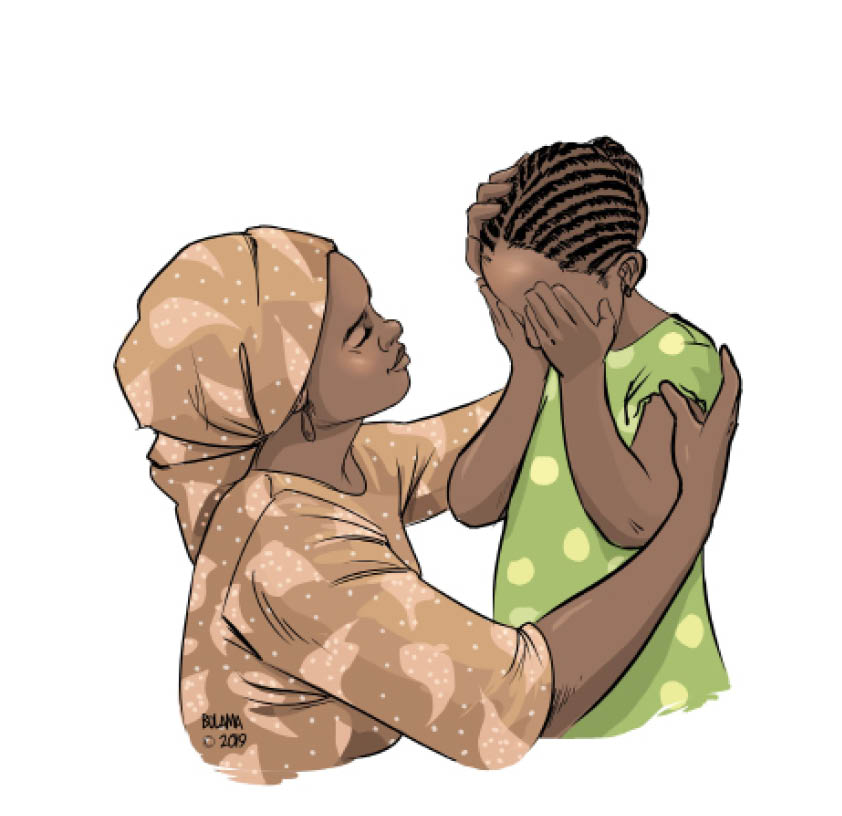Should parents apologise to children when they are wrong?
“What an old man can see sitting down, a child cannot see standing up or even atop an iroko tree.” Sayings like this and many more that highlights or emphasizes the superiority, knowledge, and wisdom of an adult, parent, or guardian abound in the African culture. As such, it wasn’t surprising when Nigeria Twitter – […]

“What an old man can see sitting down, a child cannot see standing up or even atop an iroko tree.” Sayings like this and many more that highlights or emphasizes the superiority, knowledge, and wisdom of an adult, parent, or guardian abound in the African culture.
As such, it wasn’t surprising when Nigeria Twitter – Nigerians on twitter – criticized a young man who called out his parent on the App, saying they never apologized for the wrong decisions they made him take.
A lot of people told him that it was wrong for him to expect an apology from his parent.
A young woman once narrated how she was punished by her mother for misplacing an item which she said she didn’t. Even when it was later discovered that the item wasn’t missing, she never got an apology for being wrongly accused and punished.
Should parent apologise to their children or ward if they are wrong? LifeXtra sought people’s opinion.
“Why should my parents apologize to me when they wrong me? I feel they don’t owe me apologies,” says Ismaila Umar, a graduate of the University of Abuja.
Umar believes that regardless of the mistake, no apology was necessary from his parents because he believes whatever they did come from a place of love and care.
“Africans parents rarely show emotions but we all know they love us from the decisions they take, either from selling their personal belongings to put food on the table or taking up extra jobs to pay our school fees. So when they wrong us, we should know that it is not intentional. It only happened as a result of extreme care,” Ismaila expatiated.
Hanifa Sanni, a Kwara-based house wife, on the other hand says she always apologizes to her children, to demonstrate that anybody can make mistakes irrespective of their age. “So when I wrong them, I feel a sincere apology is necessary.”
Although the housewife also feels the apology should only be given in certain circumstances, she added that she “cannot recall a single time my father or mother offered me an apology, let alone a heartfelt one,” she said.
Jummai Zubair feels parents should apologize, especially when they realize their error.
“My parents refused to consent to the man I wanted to marry because he was from a different tribe. I was forced to marry their choice and six months after the wedding, he divorced me. Since then, they have been remorseful but I need them to say it,” she said.
“This is two years since it happened and it still bothers me that I harbor the grievance. I would actually prefer to get over it, and I believe I just need them to voice out that they were wrong and actually apologise to me before I can move on,” she said.
Umma Shehu, a psychology student, believes that admitting to being wrong or to doing wrong is not an easy thing for adults to do hence the reason why many don’t apologize to their children when they are wrong.
“Parents believe they can get away with not apologizing to their children because no matter one’s age, you have little power and cannot argue with them. It all boils down to the African culture of children respecting their parents and not talking back at them. It is not because they don’t realise they have wronged the children,” she said.
In a U.S discussion forum ‘Quora’ where a similar topic was discussed, Lukasz Laniecki, a contributor, said he couldn’t recall a single time his parent offered him as an apology.
He said “Believe it or not, but this is one of the few things I’ll probably never forget. I’m 37 years old right now and it still bothers me. It’s not that I feed myself with this grievance – I’d actually prefer to get over it, but because it has to do with instances of injustice (as I saw them) and because they happened a lot, I simply cannot get it out of my head.”
Another contributor Jeremy Jameson says that apologizing to a child can make them know that they are important, their feelings are worth consideration, it is worth being kind even to those over whom we have authority as well as teach them empathy and sympathy.
He however stated that “It’s one thing to calmly and rationally disappoint a child who wants something unnecessary like a toy at a store. It’s another thing entirely to frighten a child, treat them harshly, ignore their needs, lose your patience with them, or otherwise actually cause true emotional/psychological harm – no matter how small you might think it to be.”
